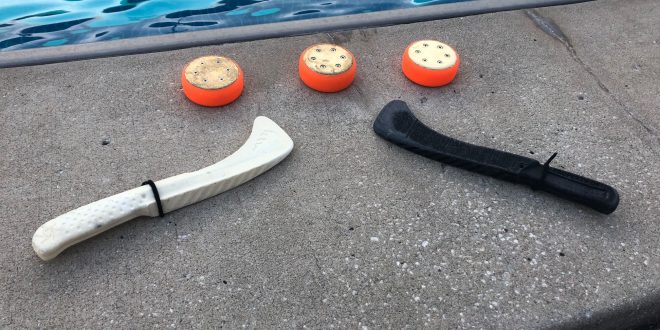-
Clark Weeks’ Specialty is Actuarial Services for Risk Reduction
Clark Weeks specializes in actuarial services and helping municipalities control their risk. Since he did not write this, we will have to check with him to see if we got the basics right.

What is it?
Actuaries are people whose job is to use data in a way that can best plan for financial risk relating to insurance and the financing profession. Anything that would potentially be paid out, be it through an insurance claim or via a pension is evaluated through concrete data. Companies will experience mortality, retirement, disability and other common claims and so the appointed actuaries determine these risks and uncertainties. Actuarial sciences are also applied to cases where life insurance is being assessed, to create a fair rate for the beneficiary based on health of the subject, as well as habits. It’s even used like data science to assess risky ventures a company could make in their investments or in what insurance policies they choose to hold.
When did it start?
Insurance itself came around in the late 17th century, when risk assessment became easier for people to understand and a lot more scientifically based. The very first cases of mortality tables were released by actuarial scientists at the end of the century, and served to divide the population into categories based on lifestyle and circumstances of said lifestyle. This made it easier for insurance brokers of the era to figure out how much risk they were taking with any new policy made. For example, you wouldn’t give the best life insurance rate to a man who was a known alcoholic and got into a lot of bar fights, because his risk of kidney failure or getting himself killed are actually quite high.
How it applies to business
Actuarial services relate to business primarily through insurance, and actuaries themselves typically work with insurance firms where their skills are put to the most effective use. There, they will apply an analysis of factors related to life expectancy and create mortality tables that measure the predictability of a scenario happening, and give their unique proposals to brokers. Not just for mortality and life insurance, but they also determine scenarios for other kinds of insurance, such as property and liability, even health and dental.
When applied to finance, it works a lot like data science does in business, but there’s a few key differences. They can apply analysis to predict the outcome of an investment, and are thus a strong presence in investment banks. A good actuary in the financial world will have acute knowledge of industries and potential investments.
How it differs from data science
As mentioned previously, actuary services are very similar to data science used in businesses. Both assess risk, value, and determine outcome and reward by taking those risks into account. However, actuaries work with more concrete data and almost exclusively for insurance or investment related numbers, typically having more accurate numbers based off of existing results rather than educated guesswork. Data scientists apply their work to a broader number of subjects, both structured and unstructured, and are not just limited to insurance. However, their numbers are used as a guideline for success rather than an assurance.
Actuaries will often use existing algorithms and place a conclusive number on their work, whereas data scientists are the ones to develop new software and algorithms, and their guesswork is geared towards variables that can’t have a fully determined outcome but aim to be more progressive. One of the biggest differences between the two professions though is that actuaries have an in-depth grasp of the financials and economic issues of the businesses they work with to create financial statements, while data scientists will not often use their skills to create statements.
Besides Clark Weeks providing Actuarial Services, you can find out about other interests here.
-
Underwater Hockey: A Clark Weeks Favorite
Background & History:
Underwater hockey originated in the UK in 1954. It was invented by one Mr. Alan Blake, co-founder of the South Sea Sub-Aqua Club. It was meant to keep the club patrons engaged during the winter months when the weather does not allow open-sea diving. It was given the interesting moniker of Octopush. From there it spread to other countries and is now played in at least 20 countries of the world. Clark Weeks discovered the sport and became not only a fan but an avid player. He plays on a national level on the senior tour.

Pucks and Sticks used in Underwater Hockey (Photo courtesy of Harrison Smajovits) How Do You Play It?
The most important skill required to master this game is of course swimming. You must first be adept at swimming before you attempt playing it. The rules are fairly simple. Each team has six active members and four substitutes waiting on the poolside. As the game requires some intense efforts so the subs can be called at any time the active player deems fit. Each player wears basic gear, that includes a swimming costume, water polo head mask, snorkels, and gloves made of special latex. The game is played in a 25×15 meters swimming pool that is 2-4 meters deep. Each team tries to score a goal by moving a 3-pound puck in the opposing team’s goal. They use a spatula-shaped stick to move the puck. There are no goalies; the team uses maneuvers, formations, advances, and teamwork to score and defend.
Duration and Rules:
The match comprises two 15-minute halves and 3-minute halftime. A 60 second time-out is given to each team for each half. The game is managed by 3 referees. One is present in the pool and two watches the game from the poolside. Using your bare hand to move the puck is considered a foul. Similarly using your free hand is against the rules, moving the stick inappropriately, striking, intercepting, intentionally blocking the opposing player with the stick is against the rules too. Jumping on a player and calling a substitute player who has been awarded a penalty is also a foul. If a player is guilty of an intentional foul play, he can be given a suspension from the game that may last from 2-5 minutes.
Is Underwater Hockey an Extreme Sport?
Underwater hockey requires a great amount of stamina, swimming skill, strength, and agility on part of its players. You have to hold your breath underwater for a long time. On top of that, you also have to play your game and defend or score a goal. This game is for the perfectly able-bodied and healthy man. It is no surprise that the British Navy Seals were the ones who first invented and popularized this game. If you can endure the physicality of this sport then you will love it for it promises to provide thrills, fun, excitement, and pride for its players in literally every second of the game. Even the spectators have a gala time watching it.
Conclusion:
Underwater hockey is an adrenaline-pumping game that provides you fun and exercise in equal measure. It is gaining popularity by the day and young people are embracing the challenge it poses for its patrons. Clark Weeks hopes you enjoy it as much as he does.